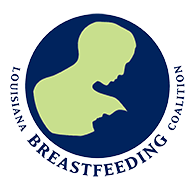Federal Breastfeeding Laws
New! Pregnant Workers Fairness Act and PUMP for Nursing Mothers Act
The Pregnant Workers Fairness Act, which goes into effect on June 27th, 2023, will ensure pregnant and postpartum workers are not forced off the job and get the accommodations they need without facing discrimination or retaliation in the workplace.
The PWFA guarantees workers the right to receive reasonable accommodations for known limitations stemming from pregnancy, childbirth, and related medical conditions unless the requested accommodations would pose an “undue hardship” to the employer (similar to the familiar process in place for workers with disabilities). The law ensures that pregnant workers, and those who have recently given birth, can protect their health without risking their paycheck.
Workers will now have a right to reasonable accommodations for pregnancy, childbirth, and related medical conditions, unless the accommodation would be prohibitively difficult or expensive (an “undue hardship”) for the employer to provide. An employer cannot force a worker to accept an accommodation that the worker does not want or need, or force a worker to take leave, whether paid or unpaid. For example, an employer cannot force a pregnant employee to accept a reduced work schedule or stop traveling for work, if the employee does not want or need those changes. The law protects people who work for the government, and for private employers with at least 15 employees. In addition to full-time workers, the law also protects part-time, temporary, and seasonal workers as well as people applying for jobs.
The PUMP for Nursing Mothers Act (which expands the 2010 Break Time for Nursing Mothers Law below) goes into effect immediately and expands protections for nursing parents in the workplace. It requires employers with 50 or more employees to provide reasonable break time for all employees, including salaried employees, to express breast milk as needed. The bill further clarifies that such breaks need not be paid, unless the employee is still on the clock or “not completely relieved from duty” during those breaks. Employers must also provide a clean and private space for nursing mothers to express milk separate and apart from restrooms. Protections for nursing parents under federal law previously did not extend to employees exempt from overtime under the Fair Labor Standard Act.
Federal Breastfeeding Laws
The National Conference of State Legislatures website is the most comprehensive website available concerning federal breastfeeding law in the United States.
United States Breastfeeding Committee (USBC) Legislation & Policy Page – This comprehensive website includes existing federal and state legislation and pending policy initiatives.
Break Time for Nursing Mothers Law

“Reasonable Break Time for Nursing Mothers” – Section 4207 of the Patient Protection and Affordable Care Act (also known as ACA or Health Care Reform), amended the Fair Labor Standards Act (FLSA), or federal wage and hour law. The amendment requires employers to provide reasonable break time and a private, non-bathroom place for nursing mothers to express breast milk during the workday, for one year after the child’s birth. The new requirements became effective when the Affordable Care Act was signed into law on March 23, 2010.
For more information about this law, click here.
Payer Coverage of Breastfeeding Support and Counseling Services, Pumps and Supplies
The Patient Protection and Affordable Care Act also included a provision that requires coverage of preventive health services for women, including “breastfeeding support, supplies, and counseling,” further defined as “comprehensive lactation support and counseling, by a trained provider during pregnancy and/or in the postpartum period, and costs for renting breastfeeding equipment.” These preventive services must be covered in conjunction with each birth, beginning in the first plan year (in the individual market, policy year) that begins on or after August 1, 2012. Plans must eliminate cost-sharing for these services, meaning they can no longer charge a patient a co-payment, coinsurance, or deductible when services are delivered by a network provider.
For more information about the Affordable Care Act, visit these links:
National Women’s Law Center – Health Benefits for Women
International breastfeeding laws
IRS Ruling to allow breastfeeding equipment as medical tax deduction
National Conference of State Legislatures – Breastfeeding Laws – Listing of statutes and laws related to breastfeeding for each state.
